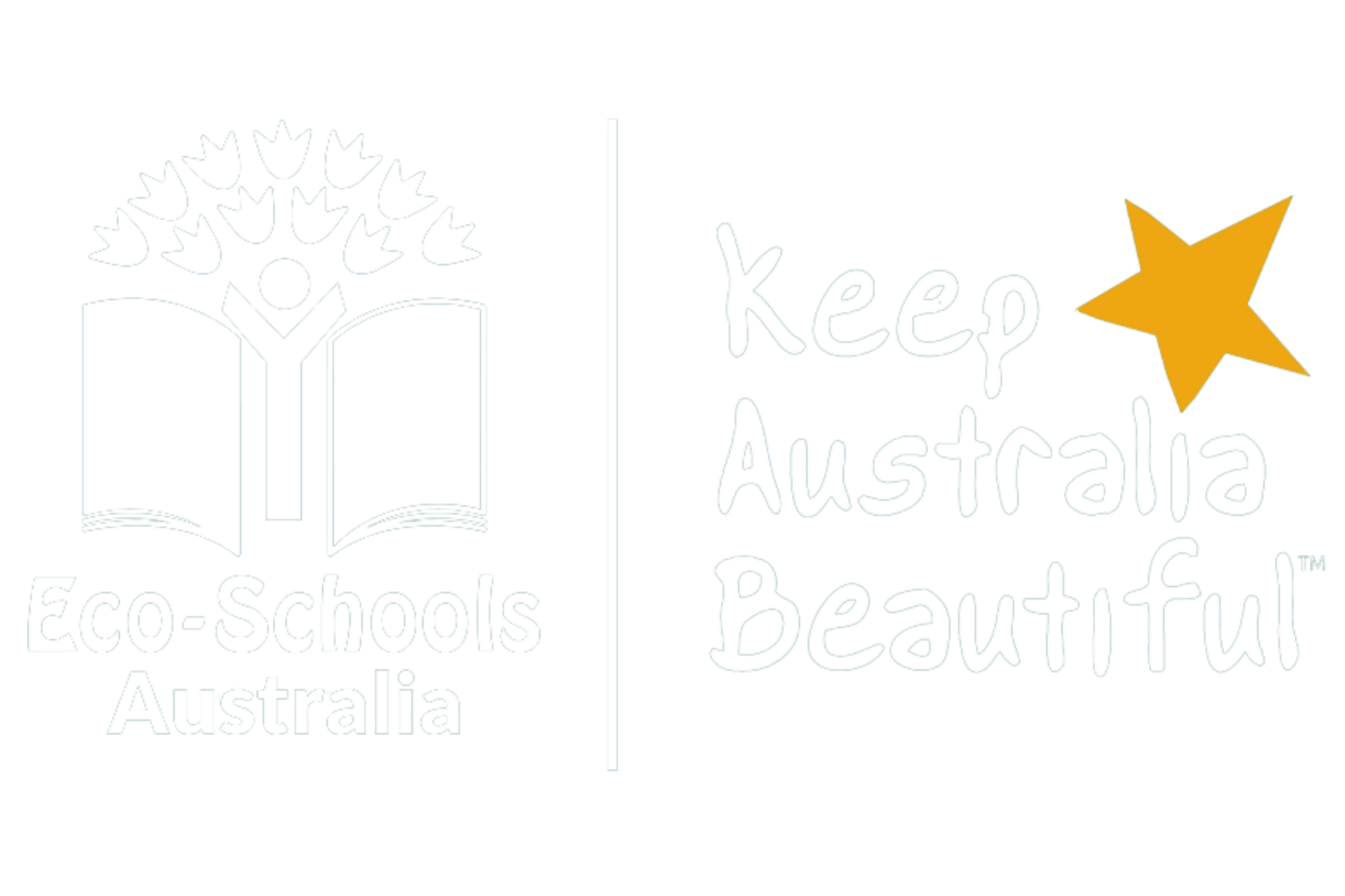Green Flag Award
The Green Flag Award is an internationally recognized award for schools that want to address a minimum of three of our themes.
To be eligible for a Green Flag Award you need to meet the criteria below:
General Criteria
- The School is registered with Eco-Schools Australia, up to date with annual subscription & has provided all requested “Baseline” reporting data
- The School keeps a portfolio of evidence of Eco-Schools activities and projects completed (Eco-Schools Portfolio, to be submitted with this checklist)
- The School completes the relevant online application form with supporting documents from their Eco-Schools Portfolio
- Eco-committee
-
- The school has an Eco-Committee that meets at least once a term, and members include:
- Pupils from a range of year groups
- Teachers from 3+ classes or departments
- The Principal or Principal’s representative
- A parent and/or governor representative
- School facilities staff member (e.g. gardener/librarian)
- Minutes are kept of meetings and progress reported back to class and school governors
- Pupils take significant responsibility for running the committee, e.g. chairing, voting, taking minutes. (at teachers’ discretion, based on age and ability of pupils involved.)
- A list or photo of the committee members is displayed in school and there is an agreed method for electing and training new members to ensure continuity of the Eco-Committee.
- The school has an Eco-Committee that meets at least once a term, and members include:
- Environmental Review
-
- The Eco-Committee completes an Environmental Review of the school at least once a year covering all of the Eco-Schools themes. Pupils took the lead in carrying out the review.
-
- Results of the review have been recorded, discussed by the Eco-Committee and communicated with the whole school to generate project ideas. The results of the review form the basis of the Action Plan
- Action Plan (work on themes)
-
- The Eco-Committee has produced a detailed Action Plan, influenced by the Environmental Review, covering 3+ Eco-Schools themes (For Green Flag Renewal: +1 additional theme incorporated per year)
- The action plan details timescales, targets and measures, who is responsible plus what curriculum & community links will be made
- Action Plan updates and other evidence in the Eco-Schools portfolio show continuous improvement against at least 3 Eco-Schools themes. Action plans are reviewed at Eco-Committee meetings and updated based on evaluation of previous projects and environmental review findings.
- Achievement of the Eco-Schools Action Plan is a priority in the overall development plan or strategy for the school.
- Monitor & Evaluate
-
- School has submitted baseline and follow-up data as required by Eco-Schools Australia
-
- The Eco-Committee collects evidence of completed Eco-Schools activities & action projects into their Eco-Schools Portfolio, e.g. samples of work, before and after photos, data collection
- The Eco-Committee leads an ongoing monitoring & evaluation process relating to Eco-Schools program. They use information they have collected to evaluate longer-term impacts against all themes addressed in their action
- The whole school is aware of progress of environmental action and is given the opportunity to evaluate its effect through discussion and debate. This enables the school to build on successes and decide on remedial action when activities are not proving successful.
- Eco-Schools monitoring data is used for curriculum work by at least one-year group.
- Curriculum Links
-
- The school can demonstrate that all students have the opportunity to explore Eco-Schools themes in at least three curriculum areas.
- Aspects of Eco-Schools activities such as Environmental Review, Monitoring & Evaluation & Informing & Involving, are integrated into a range of subjects across the curriculum for the majority of classes or year groups.
- The school has a named individual responsible for promoting Eco-Schools/ESD throughout the curriculum and an Eco-Schools curriculum audit has been completed.
- The school has a dedicated Eco-Schools day or event at least once a year.
- Inform & Involve
-
- The school has a prominent, designated notice board, detailing Eco-Schools activities.
- Details of Eco-Schools activities are put on the School’s web site
- The Eco-Committee regularly communicates Eco-Schools activities to the whole school (e.g. via assemblies) and to the wider community (e.g. via the school newsletter & website)
- The school has shared good practice with other Eco-Schools or schools who wish to join the Eco-Schools program.
- Eco-Schools activities are integral to the school and the whole school engages in annual Community Action Day (or similar activities)
- The wider community is involved in the activities going on in the school, for example, local council officers and members of local businesses, or environmental organizations.
- The school has approached the local media to cover its Eco-Schools activities.
- Eco-code
-
- The school has an agreed and adopted an Eco-Code and the Eco-Code is displayed on the Eco-Schools notice board, in all classrooms and on school website
- The Eco Code is reviewed by the whole school every year to make sure it remains relevant
- The Eco-Code is known and understood by the majority of pupils and staff

